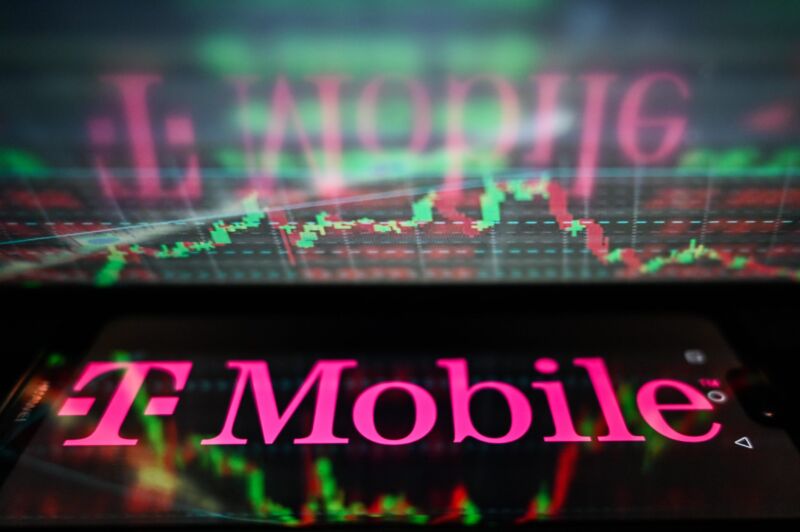
Getty Images | SOPA Images
T-Mobile has agreed to change its advertising for the “Price Lock” guarantee that doesn’t actually lock in a customer’s price, but continues to defend the offer.
T-Mobile users expressed their displeasure about being hit with up to $5 per-line price hikes on plans that seemed to have a lifetime price guarantee, but it was a challenge by AT&T that forced T-Mobile to agree to change its advertising. AT&T filed the challenge with the advertising industry’s self-regulatory group, which ruled that T-Mobile’s Price Lock ads were misleading.
As we’ve reported, T-Mobile’s guarantee (currently called “Price Lock” and previously the “Un-contract”) is simply a promise that T-Mobile will pay your final month’s bill if the carrier raises your price and you decide to cancel. Despite that, T-Mobile promised users that it “will never change the price you pay” if you’re on a plan with the provision.
BBB National Programs’ National Advertising Division (NAD), the ad industry’s self-regulatory body, ruled against T-Mobile in a decision issued yesterday. BBB National Programs is an independent nonprofit that is affiliated with the International Association of Better Business Bureaus.
The NAD’s decisions aren’t binding, but advertisers usually comply with them. That’s what T-Mobile is doing.
“T-Mobile is proud of its innovative Price Lock policy, where customers can get their last month of service on T-Mobile if T-Mobile ever changes the customer’s price, and the customer decides to leave,” the company said in its official response to the NAD’s decision. “While T-Mobile believes the challenged advertisements appropriately communicate the generous terms of its Price Lock policy, T-Mobile is a supporter of self-regulation and will take NAD’s recommendations to clarify the terms of its policy into account with respect to its future advertising.”
AT&T: Price Lock not a real price lock
While our recent reports on Price Lock concerned mobile plans, the ads challenged by AT&T were for T-Mobile’s 5G home Internet service.
“AT&T argued that the ‘Price Lock’ claims are false because T-Mobile is not committing to locking the pricing of its service for any amount of time,” the NAD’s decision said. “AT&T also argued that T-Mobile’s disclosures contradict the ‘Price Lock’ claim because they set forth limitations which make clear that T-Mobile may increase the price of service for any reason at any time.”
T-Mobile countered “that its home Internet service ‘price lock’ is innovative and unique in the industry, serving as a strong disincentive to T-Mobile against raising prices and offering a potential benefit of free month’s service, and that it has the discretion as to how to define a ‘price lock’ so long as it clearly communicates the terms,” the NAD noted.
AT&T challenged print and online ads, and a TV commercial featuring actors Zach Braff, Donald Faison, and Jason Momoa. The ads displayed a $50 monthly rate with the text “Price Lock” and included language clarifying the actual details of the offer.
The NAD said that “impactful claims about pricing policies require clear communication of what those policies are and cannot leave consumers with a fundamental misunderstanding about what those policies mean.” T-Mobile’s ads created a fundamental misunderstanding, the NAD found.
